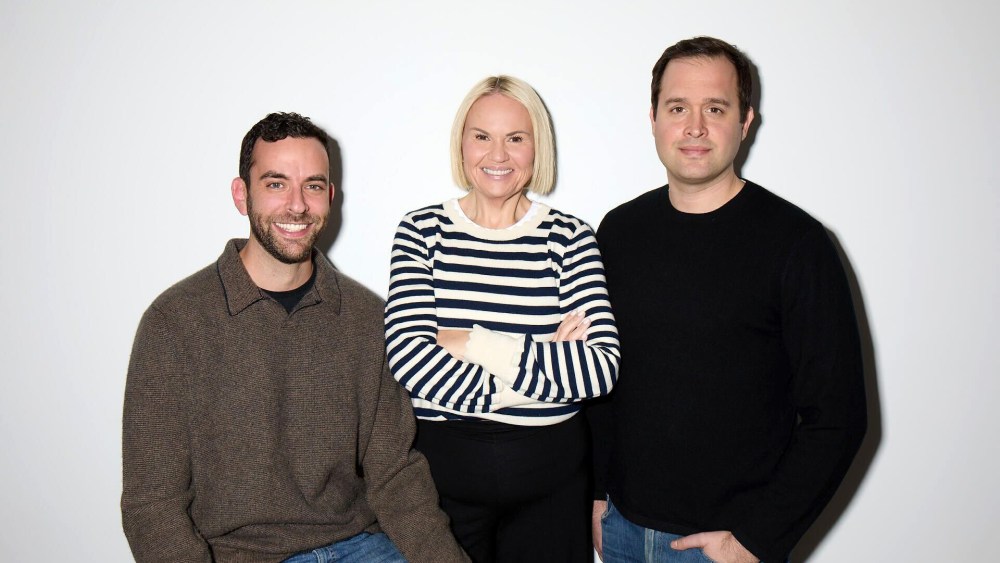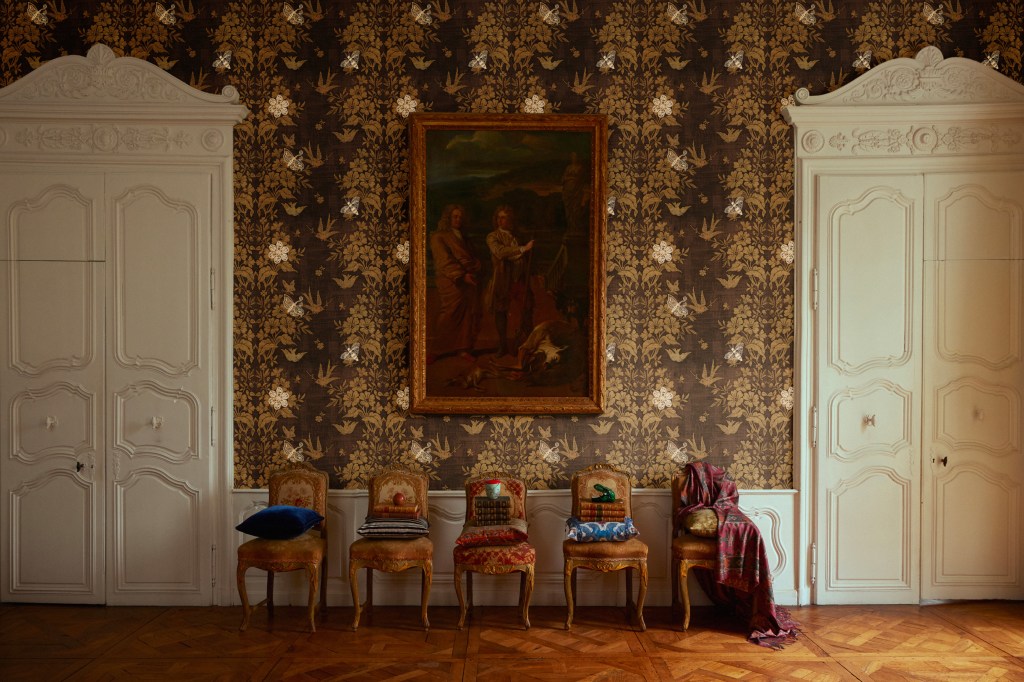Clark Sabbat, a Brooklyn-born designer of Haitian descent, is back in the fashion game.
Sabbat, whose designs feature clean lines, drapery and architectural shapes, was design director of Voodoo from 2004 to 2008, which was sold in stores such as Mitchells. He was also a cofounder and design director of Friends with Benefits from 2009 to 2013, which sold to stores such as Scoop, Kirna Zabête, Intermix and stores in Europe and the Middle East, and had clients such as Olivia Palermo and Jennifer Lawrence.

For several years, Sabbat co-managed his 26-year-old son Luka Sabbat’s acting and modeling career (Luka is known for his role as Luca Hall in the TV series, “Grown-ish”) and worked with him up until four years ago. In fact, he and his son did an ad campaign together for Dita Eyewear earlier this year.
Sabbat returned to fashion design four years ago, which was a decision fueled by a longing for the creative process. He launched Clark Sabbat in 2019 and the collection was well received. He met with Tomorrow in the U.K. and secured some orders in Paris with international boutiques. On the return trip to New York, his mother got ill and died a few weeks later. Sabbat put the collection on hold. To get through the grief, he decided to create another collection, but then the pandemic hit and he, and the world, was on pause.

Now for the past year, he has been giving design another go, while working full-time at Bergdorf Goodman. Working out of his studio at Hamilton Heights in New York, he said, “I work during the day and come home [and work on the collection] and go to sleep around 2 a.m. to 3 a.m.”
He said he’s looking to open a pop-up by summer or early fall. “I’ll be able to tap into my network and grow the business,” he said.
Sabbat, who sells mostly from his own website and Instagram, works with a factory in Midtown in New York City. In addition to ready-to-wear, he also designs unisex bags.
Sabbat attended Parsons School of Design on a partial scholarship for two years but left school in 1989. He then returned to Parsons Continuing Education program before switching to Fashion Institute of Technology’s Continuing Ed program, where he focused on tailoring, pattern-making and draping. At one point he had a clothing store called Ag/Argentium on St. Mark’s Place from 1994 to 1997.
As for his design aesthetic, Sabbat said he is inspired by Madame Gres’ draping. “You’ll see a lot of architecture in my lines,” he said. “I love a lot of draping, and I love mixing fabrics. My specialty is draping and jackets,” he said. Sabbat said he knows how to draw and would take the fabrics and put them on mannequins and “see what the fabric wants me to do. I just drape it and the patterns I make later.”

Sabbat said he does mentoring and started the Rosette Foundation where he gives people of color opportunities and mentors them.
His fall collection is his third since he relaunched.
According to Sabbat, the essence of his fall collection is “understated draped elegance with a slight twist of tailoring.” He said he spent years honing his craft and his latest collection is a reflection of his experiences. He worked with a young embroiderer to create the hibiscus flowers and also coordinated with a fabric designer to create his own Boro patterns. His collections are a combination of artisanal craft with a touch of modernity.
Among the highlights are the Nova dress, which is a double-knit diagonal neckline dress with pinched drape across the lower front, a side elongated drape and an exposed side back zipper. It comes in dark green, light green, black and eggplant and retails for $1,620. Another look is the Shimako dress, which is a double knit sleeveless dress with L seam at the waist that creates drape and handkerchief-styled hem with Boro detail on back, retailing for $2,308. The Liza dress, for example, is a matte jersey tank-style dress with lace side panels and gathered lace details on the shoulders, retailing for $2,022.
Sabbat’s jackets retail from $975 to $4,000; dresses go from $1,050 to $3,500, tops are $500 to $1,800, and pants and skirts are $800 to $2,050.
Despite Sabbat’s struggles over the years in trying to get his business off the ground, he is undeterred. “At the end of the day you have to keep on going to create your opportunities,” he said.



